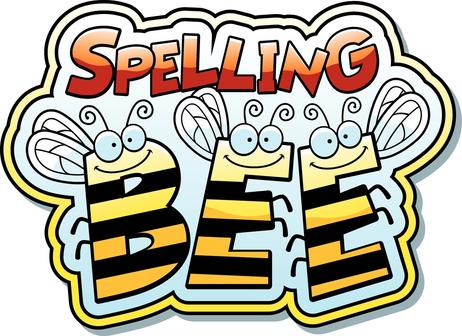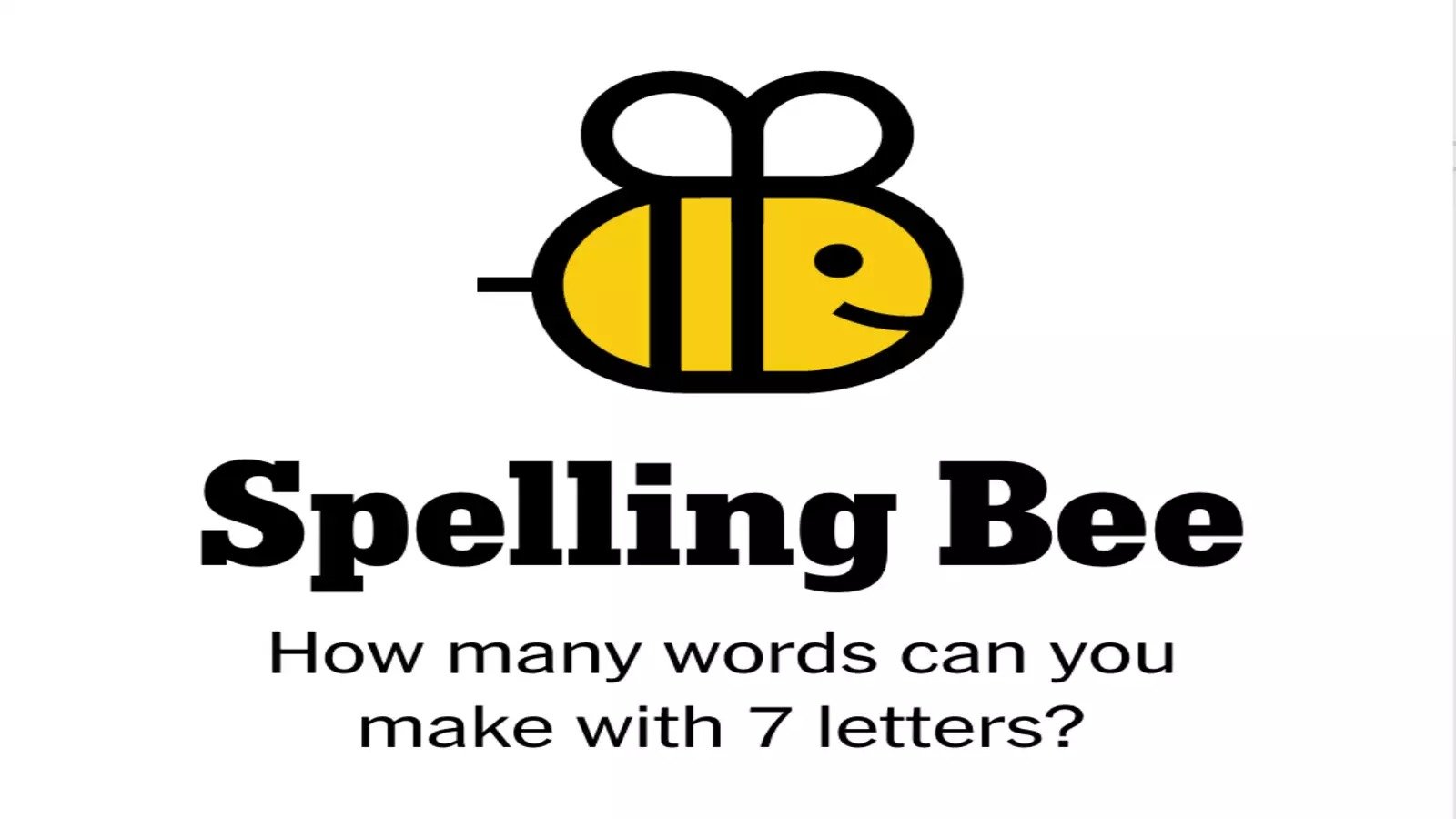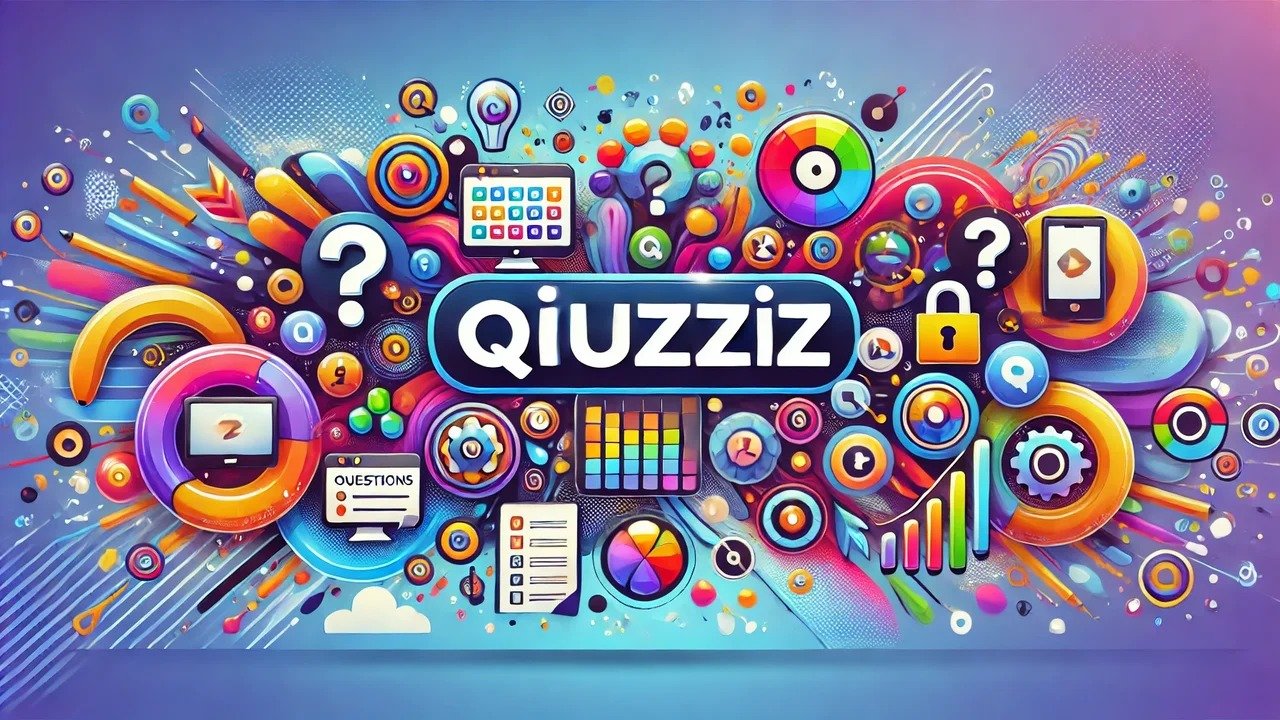Introduction to Spelling Bee Solvers
A spelling bee solver is a specialized tool designed to aid participants in enhancing their spelling skills and preparing more effectively for spelling competitions. With the increasing popularity of spelling bees at various educational levels, these solvers have gained prominence as invaluable resources for both students and educators. The primary purpose of a spelling bee solver is to provide assistance in learning new words, practicing pronunciation, and understanding word origins, which are critical components of success in such events.
One of the key functions of a spelling bee solver is to help users familiarize themselves with an extensive vocabulary list, thereby ensuring they are well-prepared for any challenge that may arise during competitions. These tools often include features that enable users to enter a word to analyze its spelling, examine its phonetic breakdown, and explore similar words or related terminology. By leveraging these functionalities, participants can identify common spelling patterns and rules, reinforcing their understanding and retention of complex words.
Moreover, utilizing a spelling bee solver can provide significant psychological benefits. For many participants, the pressure of competition can be daunting; however, having a reliable tool to bolster preparation can enhance their confidence. Knowing that they possess the necessary skills and knowledge to tackle challenging words can lead to improved performance and a more enjoyable experience during the spelling bee.
In essence, a spelling bee solver serves as a comprehensive resource that not only assists individuals in mastering the art of spelling but also equips them with the tools necessary for academic success. Understanding the mechanics and benefits of these solvers will illuminate their essential role in spelling bee preparation and performance, establishing a solid foundation for the remainder of this article.
Understanding the Mechanics of a Spelling Bee Solver
-png.jpeg?width=1200&height=600&name=MicrosoftTeams-image%20(14)-png.jpeg)
A spelling bee solver is designed to assist participants in identifying the correct spelling of words, particularly in competitive environments. At its core, a spelling bee solver typically operates using an array of advanced algorithms capable of analyzing input letters and generating possible combinations that yield valid words. This functionality is crucial for learners aiming to improve their spelling skills and for competitors who wish to maximize their performance in spelling bees.
One of the foundational elements that make these tools effective is their expansive databases of words. These databases often contain not only the standard spellings of words but also various affixes, unusual words, and phonetic variations. When a user inputs certain letters, the spelling bee solver references this vast database to provide an exhaustive list of potential matches. The efficiency of these solvers is directly tied to the comprehensiveness of their databases; the richer the database, the more accurate the output will be.
Additionally, many modern spelling bee solvers incorporate phonetic spelling techniques. This allows the solver to understand how words sound, which is particularly helpful for users who might struggle with traditional spelling but have an intuitive grasp of phonetics. By evaluating the phonetic structure of the letters entered, these tools present potential words that align both with the input letters and their phonetic pronunciations, thus enabling users to visualize and understand the sounds associated with each spelling.
Furthermore, some solvers integrate machine learning aspects. By analyzing previous user input and feedback, they can adapt their responses to provide even more personalized and relevant spelling suggestions. This technology marks a significant advancement in the capabilities of spelling bee solvers, effectively optimizing the learning process for users and enhancing their overall performance in spelling competitions.
The Benefits of Using a Spelling Bee Solver
.png?width=1200&height=628&name=ENGLISH-4%20(1).png)
Employing a spelling bee solver can provide a myriad of advantages for contestants preparing for spelling competitions. One of the primary benefits is the significant improvement it can bring to a participant’s vocabulary. By utilizing these tools, contestants can access a comprehensive database of words, allowing them to learn and practice unfamiliar spellings. This expanded vocabulary not only aids in competitions but also enhances overall language proficiency, which is beneficial in academic and professional contexts.
In addition to vocabulary enhancement, a spelling bee solver can greatly improve a competitor’s recall abilities. Frequent interaction with word lists and quizzes can help reinforce memory retention. The more a contestant practices, the more likely they are to recall words during actual competitions. This increased familiarity with difficult spellings reduces anxiety, allowing contestants to perform with greater confidence on stage.
Moreover, spelling bee solvers can alleviate the pressures often associated with competitive environments. Many students experience anxiety when facing spelling challenges or competing against peers. By utilizing these tools, contestants can engage in self-paced learning, allowing them to gradually build their skills without the stress of immediate competition. The ability to practice regularly and track progress can also instill a sense of accomplishment, further boosting confidence levels as they prepare for upcoming events.
Participants at various skill levels can benefit from spelling bee solvers. Whether a beginner seeking to learn foundational words or an advanced competitor looking to perfect their skills, these tools offer tailored support for different learning needs. Each user can leverage the unique features of a spelling bee solver, optimizing their preparation process and enhancing their overall performance in competitions.
Choosing the Right Spelling Bee Solver

When it comes to enhancing your performance in spelling competitions, selecting the right spelling bee solver is crucial. With an array of tools available, it is important to consider several key factors to ensure you find a solution that fits your specific needs. The initial aspect to evaluate is user-friendliness. A spelling bee solver should have an intuitive interface that allows users to easily navigate through its features without requiring extensive training or support. This is particularly important for younger participants or those who may not be technologically savvy.
Next, take a close look at the features offered by various spelling bee solvers. Some tools may provide basic functionalities, while others may include advanced features such as real-time feedback, interactive exercises, or extensive word databases. Assessing which features align with your goals can significantly impact your learning and performance. Moreover, customization options should not be overlooked. A good spelling bee solver allows users to tailor the experience according to their unique learning preferences, enabling practice sessions that cater to individual strengths and weaknesses.
Additionally, consulting reviews from other users can provide valuable insights into the effectiveness and reliability of a spelling bee solver. Testimonials or ratings can help to illustrate how well a tool has worked for others, guiding you toward a high-quality option. Consider seeking forums or educational platforms where users have openly discussed their experiences. With these factors in mind—user-friendliness, feature set, customization options, and user reviews—you can confidently choose a spelling bee solver that aligns with your needs and enhances your performance.
Tips for Maximizing Your Use of a Spelling Bee Solver

Utilizing a spelling bee solver effectively requires a strategic approach that combines technology with traditional study methods. Here are some practical tips to enhance your experience and performance:
Firstly, establishing a consistent routine is vital. Dedicating specific times each day for practice can help reinforce learning and allow you to track progress. A balanced schedule that incorporates breaks and relaxation can prevent burnout, ensuring that your engagement with the spelling bee solver remains productive and enjoyable.
Secondly, complementing the spelling bee solver with traditional study techniques can significantly enhance your learning. While the solver offers immediate assistance in identifying words and their spellings, manual methods such as flashcards, pronunciation practice, and writing out difficult words can reinforce memory retention. By combining these activities, you enhance your spelling skills beyond just solving queries.
Additionally, consider utilizing the spelling bee solver for mock competitions. Organizing practice sessions where you time yourself or compete against peers can simulate the actual spelling bee environment. Such engagements not only boost confidence but also allow you to identify areas that require improvement, making your practice more targeted and efficient.
Furthermore, take advantage of the features offered in a spelling bee solver. Many of these tools provide detailed explanations, pronunciation guides, and etymology of words. Engaging with these resources enriches your vocabulary and provides contextual understanding, which is essential for mastering difficult words often encountered in competitions.
Lastly, reflect on your progress regularly. Keeping a log of the words you struggle with or find interesting can guide your future study sessions. By iterating your study methods based on past performances, you continually refine your approach, ultimately leading to better results in competitions.
By implementing these strategies, you can fully harness the capabilities of a spelling bee solver, thereby maximizing your potential in upcoming competitions.
Case Studies: Success Stories Using Spelling Bee Solvers

Throughout the years, countless individuals have found success in spelling bees by leveraging spelling bee solvers. One noteworthy case is that of Sarah, a high school student who struggled with spelling due to a learning disability. Initially, Sarah felt overwhelmed during competitions and often froze when confronted with difficult words. However, after she began employing a spelling bee solver, her confidence improved significantly. By working with the tool, Sarah learned the patterns of words, their phonetics, and how to break down complex terms into manageable parts. In just a few months, she transformed from a participant who typically scored low to one who consistently placed within the top ten.
Another inspiring story comes from Michael, a dedicated adult in his thirties preparing for a local adult spelling bee. Having not engaged in spelling competitions since childhood, he was uncertain about his ability to perform. Michael sought out a spelling bee solver to refresh his skills and broaden his vocabulary. By utilizing the solver’s features, he practiced frequently and received real-time feedback on his strengths and weaknesses. The results were dramatic; Michael not only mastered previously challenging words but also cultivated a love for learning new ones. His journey culminated in him winning the competition, a testament to the solver’s effectiveness in adult education.
These examples illustrate the powerful impact of spelling bee solvers on individuals at different stages of life. By providing users with strategies to approach spelling challenges and a host of resources for practice, these solvers have equipped many with tools necessary for success. The transformation observed in participants like Sarah and Michael serves as a beacon of hope, inspiring others to harness these resources and improve their spelling capabilities effectively.
Potential Drawbacks of Relying on a Spelling Bee Solver

While spelling bee solvers can be a useful tool for aspiring champions, it is vital to consider the drawbacks of relying solely on them. One significant concern is the risk of overreliance on technology, which may diminish an individual’s ability to develop essential spelling skills independently. When participants depend heavily on a spelling bee solver, they may neglect traditional study methods that foster a deeper understanding of spelling conventions, phonetics, and word origins.
Moreover, the use of a spelling bee solver might inadvertently create gaps in a learner’s comprehension. These tools often provide answers quickly without explaining the nuances of word formation, etymology, or morphological structures. Therefore, users may find themselves able to spell words but lacking the background knowledge necessary to comprehend their meanings and proper usage. This is particularly important in competitive settings, where knowledge of word roots can add to the effectiveness of memorization and recall during challenging rounds.
In addition, relying too much on spelling bee solvers can lead to a lack of critical thinking skills. Understanding word origins and structures encourages an analytical approach to problem-solving that is vital not only in spelling competitions but also in academic contexts. Engaging in independent learning promotes cognitive development, enhances retention, and fosters a genuine love for words, all of which may be compromised if one leans on digital resources exclusively.
Lastly, there is the aspect of competition pressure; as participants increasingly depend on technology, they may struggle when these tools are not available or when they are faced with words that do not conform to standard patterns. This can create anxiety and hinder performance during actual competitions. A balanced approach that combines the use of a spelling bee solver with traditional methods of learning and practice is crucial for achieving optimal performance and developing a well-rounded skill set.
Combining Traditional Learning with Digital Tools

In an increasingly digital world, the integration of traditional learning methods with modern technological tools, such as spelling bee solvers, provides a comprehensive educational experience. Traditional strategies like flashcards, reading, and writing exercises have long been staples in spelling education, offering foundational skills essential for mastering the intricacies of language. These methods promote active engagement, cognitive retention, and the development of a robust vocabulary.
Flashcards, for instance, are an effective way to reinforce memory recall and understanding of spellings. By creating a set of flashcards with words and their definitions or pronunciations, learners can benefit from repetitive exposure, which is essential for committing words to long-term memory. When combined with a spelling bee solver, learners can cross-reference their progress and receive instant feedback on their performance. This combination fosters an environment where traditional study habits enhance the functionality of digital tools.
Additionally, incorporating reading and writing exercises into spelling practice is vital. Reading exposes students to words in context, aiding comprehension and spelling recognition. Engaging with various literature not only builds vocabulary but also offers opportunities to encounter new words that may appear in spelling bees. Writing exercises further solidify spelling proficiency, as crafting sentences or stories necessitates the practical application of learned words. Utilizing a spelling bee solver alongside these activities can provide insights into the complexity of words, including their phonetics and origins, ultimately enriching the learning journey.
This holistic approach to spelling mastery, blending traditional techniques with the advantages of digital tools, maximizes learning outcomes. By embracing both strategies, learners are better equipped to enhance their performance in competitive environments, such as spelling bees, ensuring they have a well-rounded arsenal for effective spelling and comprehension.
Conclusion: Embracing Technology for Spelling Success
In the ever-evolving landscape of education, technology plays a pivotal role in enhancing learning experiences. Throughout this discussion, we have explored the numerous benefits of integrating a spelling bee solver into study practices. These advanced tools not only facilitate immediate access to word definitions and spellings but also foster a deeper understanding of language nuances and etymology. By leveraging a spelling bee solver, learners can develop confidence and proficiency in their spelling skills.
Furthermore, the combination of a spelling bee solver with various learning methods regularly cultivates a comprehensive educational approach. While traditional study techniques such as flashcards and repetition serve their purpose, technology offers unique advantages. Automated tools can provide tailored quizzes and feedback, leading to improved retention and application of spelling knowledge. This dynamic approach ensures that learners remain engaged and motivated, ultimately paving the way for academic success.
As we conclude, it is essential to recognize that technology should be viewed as an ally in the journey toward mastering spelling challenges. The integration of a spelling bee solver promotes a collaborative learning environment, allowing individuals to harness their potential effectively while embracing the opportunities presented by digital resources. Personal growth in any educational framework is a continuous endeavor, and the support of technology can amplify these efforts significantly.
In summary, adopting a spelling bee solver can be a transformative experience for learners seeking to enhance their performance. By combining technology with traditional learning methods, individuals are better equipped to face spelling challenges with confidence and skill. Embracing these innovative tools marks a commendable step toward achieving spelling excellence and lifelong learning.










